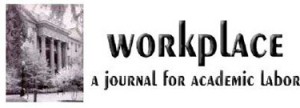Canadian Press: Canada’s top court refuses to hear B.C. unions’ appeals about one-day strikes
VANCOUVER, B.C. — Two prominent British Columbia unions have lost their bid to have the Supreme Court of Canada decide whether a pair of one-day walkouts were Charter-protected political protests or illegal strikes.The teachers’ and health-workers’ unions staged separate walkouts in 2002 and 2003 to protest a provincial law that stripped their collective agreements – walkouts the province’s Labour Relations Board ruled were illegal.
Examiner.com: Pending strike for east bay schools
Teachers come out in droves for a strike authorization vote in East Bay District of West Contra Costa Unified School District, WCCUSD. They voted 93% yes, authorizing the United Teachers of Richmond, UTR, the authority to strike.
Wichita Business Journal: Teachers union rejects proposed contract
Untied Teachers of Wichita rejected a tentative agreement with the board of education, with 56 percent voting against the contract that called for pay freezes, elimination of bonuses and increases in health care premiums. In all, 2,684 teachers voted.
Providence Journal: 15 teacher contracts remain unresolved in R.I.
With just days to go before the start of school, a high number of school districts have unsettled teacher contracts, an indication of the tough financial times facing communities, say education and union officials.
NarcoNews: The Learning Curve of the Teachers vs. the Honduras Coup
AUGUST 23, 2009, SABA, HONDURAS: The classrooms were empty but the assembly hall was full. Last Thursday afternoon, more than two hundred striking schoolteachers and other members of the civil resistance from the northeastern state of Colón gathered at the city high school to chart their next steps.
Arab News: PA dismisses teachers, arrests Hamas loyalists
RAMALLAH: Hamas on Saturday said that the West Bank-based government of Prime Minister Salam Fayyad has dismissed 17 Palestinian teachers following recommendation from the Palestinian Authority security forces.
Toronto Sun: Oh, no, not another strike!
Toronto’s public high school teachers still don’t have a new contract, but at least they’re still talking
Free Press: Detroit unions threaten to strike over cuts
They rally in protest over plans that call for furloughs, layoffs and labor concessions
Public employees and members of several Detroit labor unions threatened to strike Wednesday in response to Mayor Dave Bing’s plans to trim the city’s budget through furloughs, layoffs and union concessions. Representatives from AFSCME Local 207, the Detroit Federation of Teachers and the activist group By Any Means Necessary threatened to strike if Bing and Detroit Public Schools Emergency Financial Manager Robert Bobb continue to lay off people and threaten bankruptcy and wage and benefit cuts.
Detroit News: Editorial: Strike would damage chance for recovery
A strike by public employees in Detroit would hurt recovery chances for the city and region
The last thing Detroit needs is a strike by its public employees. The city and region are reeling from the shrinkage of the domestic auto industry and declining tax revenues. A labor walkout would seriously hurt the chances of this area to join in any economic recovery in the rest of the nation.
Nigeria: ASUU Strike Threatens National Interest
Lagos Civil Society Alliance of Nigeria, a Kaduna-based rights group, has appealed to Academic Staff Union of Universities (ASUU) to embrace dialogue with the Federal Government and suspend its six-week-old strike in the interest of students.Addressing a press conference in Lagos, the group’s convener, Bashir Abdul, expressed concern over ASUU’s plight, but pleaded with the university dons to rev…
The Post (Zambia): PTUZ calls for reimbursement of teachers’ salaries
NEWLY formed Professional Teachers Union of Zambia (PTUZ) interim president Osward Matandiko has challenged teacher unions to reimburse teachers salary deductions they are suffering as a result of taking part in the recent strike action. Matandiko said Basic Education Teachers Union of Zambia (BETUZ), Secondary Education School Teachers Union of Zambia (SESTUZ) and Zambia National Union of Teachers (ZNUT) had huge financial reserves from which they could pay their members the deductions that the government had slapped on them for taking part in the strike.
Bucks County Courier Times: Teachers contract talks at a standstill
Teachers will weigh their options at a Sept. 2 union meeting. Less than a month before school starts, the North Penn School District and its teachers union are still deadlocked over a new contract.
Business Day (Nigeria): Teachers Strike: FG pulls out of talks
Hopes of getting the university students back to school have been dashed as the Federal Government negotiating team announced its official withdrawal from the ongoing re-negotiation exercise with the Academic Staff Union of Universities (ASUU) on the ongoing industrial action. Gamaliel Onosode leader of the federal government team who announced government withdrawal from the exercise also urged the Governing Councils of Federal Universities to recall their staff that are on strike and provide an enabling environment for teaching, research and community services for those who are willing to work.
Onosode said until the Union suspends its current strike, it will not continue because of non availability of enabling environment for governing councils to continue the negotiation with their employees.

 Follow
Follow